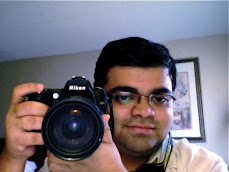If 10,000 copies of an album are sold at $15 a piece, the artist gets $15000 and the recording label takes $135,000. Of course, the recording label has to pay for manufacturing the CDs, for marketing them and partially for losses on albums that don't sell as expected.
I hear ya... they need to pay lawyer fees to sue individuals for acting as pirates. Oh but hey, they squeeze a lot of money out of the accused (typically $750 per track shared - have you heard of Jammie Thomas?) and they end up making a fat profit out of it. We never know if court cases can be considered an expenditure or a new source of income, so let me not count that.
The copyright law upholds the property rights of an individual or company, and as such, is a basis for success in a capitalistic society. So, the society, as a rule, takes a tough stance against anyone breaking the copyright law. Well, as a person who appreciates capitalistic ideals, it does make sense to me. But a civilized society also provides rights to criminals (at least basic human rights). So, stripping a person of $750 for sharing a song is equivalent to the Arabian law of amputating a hand because the hand was instrumental in perpetrating a crime.
RIAA's tactics of intimidating file-sharers has been met with strong criticism. RIAA singles out individuals who could be caught easily, and make them pay for the mistake of a thousand others. So, how does that help in reducing piracy? Did that stop any Chinese or Canadian torrent site from sharing files? No it doesn't. They're just taking advantage of the law to make up for the "estimated" loss caused by piracy. But that's not law is meant for. A law is put in place to restrain future criminals. If a particular law fails to achieve this goal, the law should no longer be used.
RIAA has recently realized that there are more civilized ways of dealing with the crime. They're working with ISP's to identify and prevent file-sharing. They're now using technology to prevent crime and not to identify criminals and sentence them to death.
There are other ways too.
- Get into the digital music revolution. Save money by cutting down on CD manufacturing and distribute DRM-free music online. It would be of great help if you pay the artists for digital music sales.
- Make music cheaper to buy. If each track costs 20 cents to purchase (ensuring the actual artist still gets paid his 10 cents), This will not stop piracy totally, but more people will end up buying original music. They have done that in India and now many people buy original CDs. They haven't done that yet for DVDs, so the DVD piracy is still a major problem.
- Use technology to detect and identify individuals sharing copyright music in a big way. Send "cease and desist" notices to them. Then use the law to help the ISP withdraw broadband service to them, and ensure he doesn't get broadband access from any other ISP.
- Release music across the world at the same time, at an affordable price. Piracy of a particular album is at it's greatest in the first week the album hits the market. Many people Rwill not resort to piracy if the album is available in their store, and if they can afford it.
RIAA, thanks for waking up. Please stop intimidating people, and earn your reputation back with the musicians and customers. The musicians need your encouragement in releasing their music, and the customers need your help in getting the music they want at the right price. That's how you add value to the supply-chain. Make decent profit and enjoy our love.



